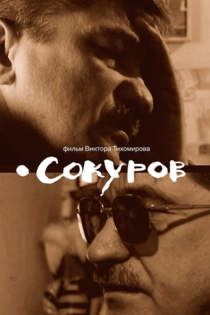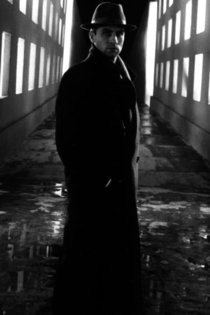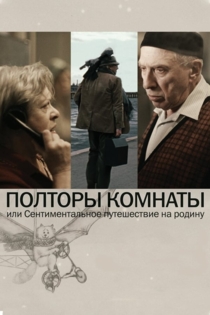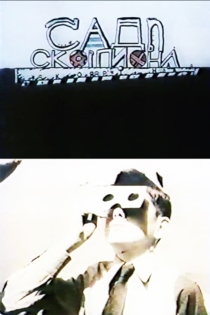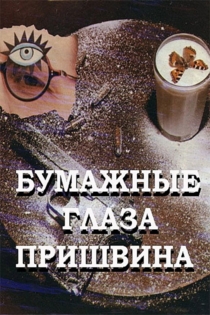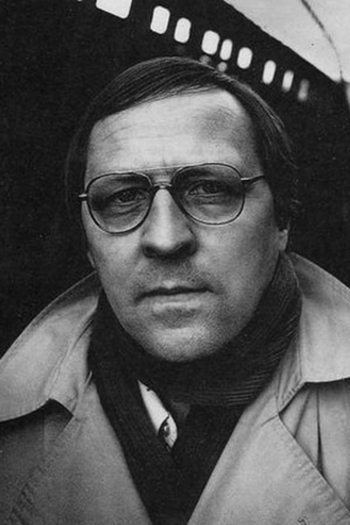
Oleg Kovalov
1950 (75 лет)Остров мёртвых
Oleg Kovalov
Vera Kholodnaya, Joseph Stalin
The Island of the Dead is a film about the demise of the Russian Epocha Modern. The symbol of this culture was the legendary Russian film star Vera Kholodnaya, who evoked a poetic image of the young urban woman on the silver screen. Her death in 1919, shrouded in tragedy and mystery, put a symbolic end to the pre-Revolutionary period. The Island of the Dead is composed of fragments from numerous films from this period, juxtaposed with other contemporary artistic expressions such as music and painting. Kovalov shows convincingly how the fragile beauty of the Russian Epocha Modern had to make way for the pressure of Futurism, Constructivism and other 'progressive trends', and how these '-isms' were then also relegated to the melting pot to be remoulded by totalitarian norms.
Island of the Dead

Сергей Эйзенштейн. Мексиканская фантазия
Sergei Eisenstein, Oleg Kovalov
Alexandra Scheff, Grigori Aleksandrov
Eisenstein shot 50 hours of footage on location in Mexico in 1931 and 32 for what would have become ¡Que viva México!, but was not able to finish the film. Following two wildly different reconstruction attempts in 1939 (Marie Seton's 'Time in the Sun') and 1979 (Grigori Alexandrov's '¡Que viva México!') Kovalov has here compiled another hypothetical version of what Eisenstein's film might have been.
Sergei Eisenstein: Mexican Fantasy
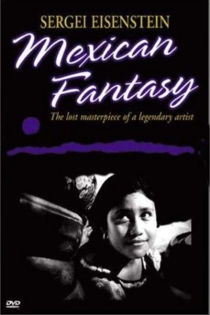
Копейка
Ivan Dykhovichnyy
Andrey Krasko, Roman Madyanov
In this movie we follow fate not a person but car: first Soviet Lada. It starts with Brezhnev daughter and then gradually moves on parallel to last years of USSR into wild after-perestroika years with bandits and newly born oligarchs.
The Kopeck

Концерт для крысы
Oleg Kovalov
Yelena Savina, Fyodor Konovalov
Крыса живёт в клетке, которая стоит в комнате большой коммунальной квартиры, в которой живёт поэт. Квартира находится в доме; Дом - во дворе колодец; Двор находится в городе; А на дворе - 1939 год... В фильме много кадров кинохроники тех времен, звуковой ряд содержит как популярные, так и пропагандистские песни, как советские, так и немецкие. Сюжет разбит на множество не связанных между собой эпизодов, раскрашенных в разные цвета. Автор утверждает, что всё показанное следует понимать вне символики: всё в фильме означает только себя.
Концерт для крысы

Сергей Эйзенштейн. Автобиография
Oleg Kovalov
Sergei Eisenstein
A free film adaptation of the director's memoirs. In form, this is the "stream of consciousness" that attracted Sergei Eisenstein after getting acquainted with the experiments of James Joyce. The outer outline of the film is a long foreign trip of the director, which began in 1929, during which he recalls his past life and considers creative ideas. The film is constructed as a free alternation of reality, dreams, and fantasies. The material for it is fragments from the films of Sergei Eisenstein and his fellow contemporaries, documentary footage depicting the director and his time. The wide coverage of the faces and events reflected in the film shows the special role of Sergei Eisenstein in the culture of the twentieth century…
Sergei Eisenstein: Autobiography
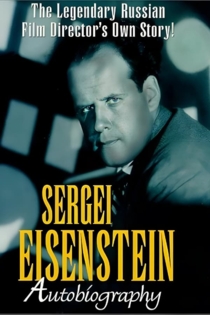
Сокуров
Viktor Tikhomirov
Aleksandr Sokurov, Igor Bezrukov
Poetic portrait of a filmmaker. The famous director reflects on creativity and love. His friends and associates take part in the film: artist Vladimir Shinkarev, engineer Vladimir Nikolaev, actress Elena Kramer (Spiridonova), director, film critic Oleg Kovalov, necrorealist directors Yevgeny Yufit, Igor Bezrukov.
Sokurov
